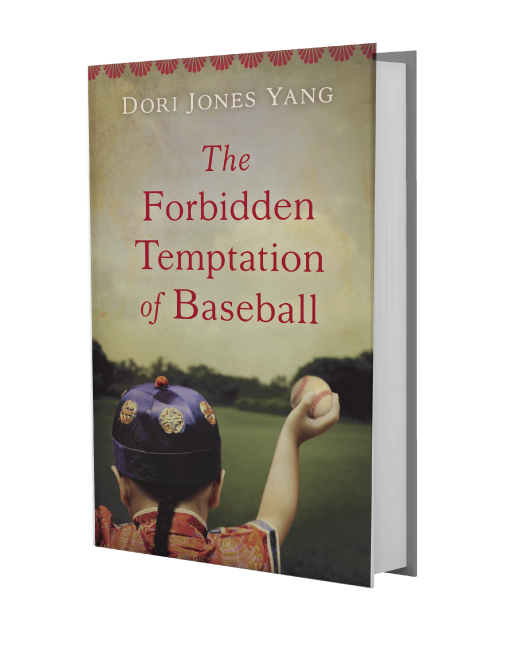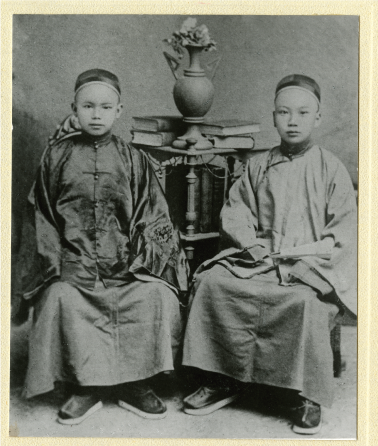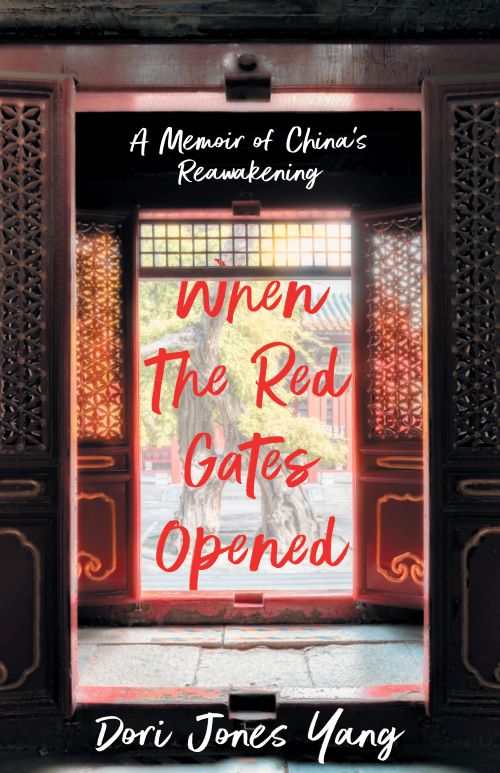
“Through the eyes of the ever curious Leon Woo, America is a play of both dazzling light and layered shadows.”
—Conrad Wesselhoeft, author of Dirt Bikes, Drones, and Other Ways to Fly

The Forbidden Temptation of Baseball
For her newest book, The Forbidden Temptation of Baseball, Dori Jones Yang researched the 1870s Chinese Educational Mission to the United States. Fascinated by the image of Chinese boys with Manchu-required queues playing baseball in small New England towns, Yang wrote this novel to help American kids understand what it’s like for foreigners to adapt to life in the United States.
AWARDS
2018 Washington State Book Awards finalist
2017 Moonbeam Children’s Book Awards: Gold Award, Pre-Teen Fiction – Historical/Cultural
2017 USA Best Book Award Winner in Children’s Fiction
2017 Freeman Book Awards Winner in Young Adult―High School
2018 IPPY Gold Medal Winner in Multicultural Fiction – Juvenile–Young Adult
2018 Foreword Indies Finalist in Children’s―Juvenile Fiction
2018 IBPA Ben Franklin Awards Finalist in Young Reader: Fiction
2017-2018 Reader Views Literary Award in Children―Teen Age 12 to 16





It is 1875. Imagine you are an 11-year-old Chinese boy who has been sent to the United States by your government to gain an American education.
A Chinese boy struggles to adapt to American life–and discovers baseball. Despite his impulsive and curious nature, twelve-year-old Leon is determined to follow the Emperor’s rules―to live with an American family, study hard, and return home to modernize China. But he also must keep the braid that shows his loyalty―and resist such forbidden American temptations as baseball. As Leon overcomes teasing and makes friends, his elder brother becomes increasingly alienated. Eventually, Leon faces a tough decision, torn between his loyalty to his birth country―and his growing love for his new home.
The Forbidden Temptation of Baseball is a lively, poignant, and nuanced novel based on a little-known episode from history, when 120 boys were sent to New England by the Emperor of China in the 1870s. This story dramatizes both the rigid expectations and the wrenching alienation felt by many foreign children in America today―and richly captures that tension between love and hate that is culture shock. It gives American readers a glimpse into what it feels like to be a foreigner in the United States and will spark thoughtful discussions.
Read a Short Excerpt
“Do you understand English?” asked one boy in a polite tone. He stood apart from the group crowded around Leon.
Leon was just about to answer, “A little,” when he felt a tug at the back of his neck. He swung around. A boy named Johnny had Leon’s braid in his hand. With his other hand, Johnny pushed Leon so he turned in a full circle. Leon’s hands flew to his neck, his braid wrapped tightly around it. He gagged. Aaiya!
“Chinee boy no talkee,” Johnny said in a mocking voice.


Connecting generations and cultures through the lives of ordinary people
Dori Jones Yang is a writer who aims to build bridges between cultures and between generations. Author of a wide variety of books for different audiences, she loves to explore different countries, explain complex issues in understandable language, and make history come alive.
Dori Jones Yang
Author’s Comments
I’ve spent much of my life studying Chinese, reporting in China, and reading and writing about Chinese history. So imagine my surprise when two close friends who grew up in China, Betty and Peter Tonglao, told me a story I had never heard: That the Chinese government—way back in the 1870s—sent 120 boys to the United States as part of a grand experiment. They were to live with American families, learn English, and go to college so they could then go home and help modernize China. One of these boys, then only eleven years old, was Peter’s grandfather. That set my imagination spinning, and I wrote this book to try to help American kids imagine what it was like for a boy like that.
Author Comments
I’ve spent much of my life studying Chinese, reporting in China, and reading and writing about Chinese history. So imagine my surprise when two close friends who grew up in China, Betty and Peter Tonglao, told me a story I had never heard: That the Chinese government—way back in the 1870s—sent 120 boys to the United States as part of a grand experiment. They were to live with American families, learn English, and go to college so they could then go home and help modernize China. One of these boys, then only eleven years old, was Peter’s grandfather. That set my imagination spinning, and I wrote this book to try to help American kids imagine what it was like for a boy like that.




